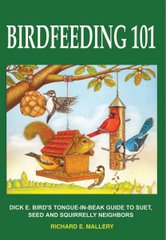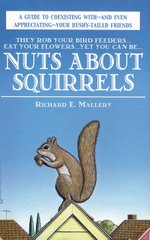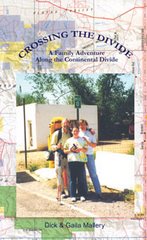
The "Look"
When it comes to competition for food at the feeder, the alpha squirrel is easy to spot by the "look." This furball never has to make a sound; all he has to do is supply the "look." The "look" can be felt. The dominant squirrel controls food flow. If another animal approaches the feeder, the dominant squirrel will shoot a "look" that would make a wood duck—duck. This will usually end the challenge. If not, a bluff charge is in order. If you study your squirrels, you will discover a whole arsenal of "looks."
There is the "straight-on look," the "side-shot look," the "short look," the "long look," the "glance dance," and the "glare stare."
Each "look" was developed for a particular situation, and some are used in combination with the "bluff charge." At the same time, optic nerves have to network with hearing capabilities. When a squirrel is concentrating on the "look," he still has to hear the side door of the house quietly open. He has to hear the bristles of the broom flutter in the still morning air. Some say a squirrel has the ability to hear the rapid heartbeat of a homeowner through double-pane glass. This is a myth. A squirrel has exceptional hearing, but it is not that good. What the squirrel detects through the window is—the "look."
Do Birds Belch?
How many times have you sat at the window, watching your birds at the feeder, and wondered about this? Have you ever heard a bird burp? You would think birds would burp by the way they gulp down food.
The definition of a bird belch is "to eject [gas] noisily from the stomach through the beak." In France, if a bird belches at the birdfeeder it means it truly enjoyed the meal.
How many times have you sat at the window, watching your birds at the feeder, and wondered about this? Have you ever heard a bird burp? You would think birds would burp by the way they gulp down food.
The definition of a bird belch is "to eject [gas] noisily from the stomach through the beak." In France, if a bird belches at the birdfeeder it means it truly enjoyed the meal.
Greased Lightning
A question many people have been asking themselves is: "Are my chances of being hit by lightning lesser or greater than being hit by bird droppings?"
There are many things to consider when trying to answer this question. First, there are many more birds than lightning bolts. When you hear thunder, you know you were not hit by lightning. If you hear a bird, however, it does not necessarily mean you weren’t hit by a dropping. Your chances of getting hit by lightning used to be one in a million. But since the world population has increased, lightning has more targets, which makes your chances of getting hit by a bolt one in five million.
The same thing is true with birds. More people, more targets, less chance of being dropped on. Also, the world’s bird populations are dropping dramatically, which makes getting hit with bird droppings even more rare.
But if you assume you will be hit by lightning, before you will be hit by a bird dropping, you are wrong. A weather system will only produce a small number of storms, and a storm will only produce a small number of lightning bolts, but birds will produce droppings continuously because birds have no bladders. Your actual chances of getting hit by a bird dropping is 150 percent.






No comments:
Post a Comment